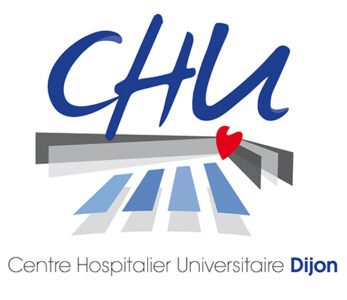Professor Blames Ghostwriter for Review Plagiarism

Update: Retraction Watch has posted an update to the story with news that the journal has decided to retract the plagiarized review paper. It will be Loffroy’s first retraction.
Update 2: According to another update by Retraction Watch, Loffoy has “voluntarily resigned” as deputy editor of the journal Quantitative Imaging in Medicine and Surgery after additional findings of plagiarism and other ethical issues with his earlier work.
Romaric Loffroy is a professor of interventional radiology at CHU Dijon Bourgogne in Dijon, France. In October 2015, he published a review entitled “Current role of multiparametric magnetic resonance imaging for prostate cancer,” in the journal Quantitative Imaging in Medicine and Surgery.
However, according to a recent article by Frederik Joelving at Retraction Watch, the article copied significant text verbatim from two separate reviews published earlier that year, one in the Korean Journal of Urology and another in Indian Journal of Urology.
The authors of the paper in published in the Korean journal reached out to Loffroy but didn’t hear back. However, a colleague of theirs, Henry Woo from the Australian National University did receive a reply after emailing Loffroy, his co-authors and the editor of the journal at the same time.
Woo, in his letter, suggested that Loffroy request a retraction and said he found it “disturbing” that the verbatim copying was not detected sooner.
To put it modestly, Loffroy’s response was probably not what Woo expected or hoped for.
Instead of accepting responsibility and calling for a retraction, Loffroy downplayed the plagiarism. His arguments included:
- That it was a review article published more than eight years ago and thus “less harmful in terms of scientific impact”
- That the duplication represents less than 8% of the paper in question, which he says is “largely within the limits of what is acceptable”
- That the article passed the journal’s plagiarism check
- That he wouldn’t mind if others plagiarized his work
- That he was too important and too busy to check for plagiarism in his work or the work of anyone else
However, his most bizarre argument was that he was not responsible for the plagiarism and, instead, it had been ghostwritten by an unnamed “medical writer.”
Woo wrote back challenging Loffroy’s claims, though it’s unclear if Loffroy has written back. Loffroy did not respond to requests for comment by Retraction Watch.
To call this case bizarre is an understatement, but it’s not the first time that we’ve seen these arguments made, in particular when it comes to blaming a ghostwriter.
The Ghostwriter Did It
The idea of blaming a ghostwriter for plagiarism is not a new one. In fact, it’s a surprisingly common deflection or excuse given for plagiarism outside of academia.
Back in March, this excuse came out in full force during a plagiarism scandal involving a book written by celebrity physician Dr. David Agus. Though, initially, he took blame for the issues, as more allegations piled up, his ghostwriter, Kristin Loberg, acknowledged the issues and even said Agus was not to blame. Agus also placed the blame squarely on her.
However, perhaps the most infamous of such cases as the Cristiane Serruya from February 2019.
Serruya was a romance author who had published more than 30 books. Fellow romance authors began to find examples of verbatim plagiarism in her work, prompting them to dig deeper and find more and more examples.
When confronted with the issues, Serruya deflected and instead blamed a ghostwriter that she had hired from the freelancer site Fiverr. However, that only caused the backlash to get more intense as authors realized she didn’t write her own books.
Serruya’s books were quickly taken down, and she ended up drawing a lawsuit from industry icon Nora Roberts, one of the authors she had plagiarized.
However, we don’t see this excuse nearly as often in academic publishing. The reason is that, while there are definitely environments where using a ghostwriter is acceptable, academic publishing typically isn’t one of them.
The reason is simple: Using a ghostwriter on an academic paper entails having an author do significant work on the paper without receiving credit or having their work disclosed. This is broadly seen as a breach of authorship and an act of research misconduct unto itself.
In short, by admitting to using a ghostwriter, Loffroy is attempting to deflect an allegation of plagiarism by admitting to a different breach of authorship.
It’s not a significant improvement, and it doesn’t really help his plagiarism arguments either. That’s because, even if one uses a ghostwriter in an ethically acceptable way, the author whose name is on the work ultimately bears responsibility for it. That includes plagiarism.
That is why both Agus and Serruya were held accountable for their plagiarism, even if neither of them did it directly. That’s why Loffroy should receive the same treatment.
And Other Bad Arguments
Of course, blaming the ghostwriter isn’t Loffroy’s only bad argument. Pretty much all his arguments fail under even just a cursory examination.
While he may be correct that the review is old and not an original paper, thus meaning the scientific impact is lessened, that doesn’t change the fact that he published a plagiarized paper. It also doesn’t change the fact that his paper has been cited and used by other researchers, who were unaware of the actual source.
His arguments about the percentage of plagiarized material fall equally flat. Despite his claims, there is no percentage that is acceptable. Some papers can have a great deal of copying without it being plagiarism and, in other cases, very low percentages can indicate serious plagiarism problems. This is why humans have to perform plagiarism analyses.
To make matters worse, according to Woo, the plagiarized portions include the abstract, introduction and conclusions, the most important parts of the paper. While there are sections of academic papers where copied text may not raise serious alarms, these are not those sections.
The article passing the journal’s plagiarism check is irrelevant. It’s unclear if the journal even performed such a check and, even if it did, the fact it passed means nothing. It’s akin to arguing that a break in was not an issue because the homeowner didn’t notice it at the time.
To make matters worse, according to both Woo and Joelving, the journal in question has, in the past, been identified as a “predatory journal”, hinting that its peer review process may not be lacking.
Finally, his last two arguments, that he wouldn’t mind if his work were plagiarized and that he’s too important to check his work, are completely irrelevant and likely only made to make himself sound too important to deal with these allegations.
When it’s all said and done, Loffroy’s arguments fail to deflect or even mitigate the plagiarism allegations. If anything, they make look worse things worse for. Instead of simply having a plagiarism issue in a paper he published, he’s now a researcher who uses uncredited ghostwriters and is far too busy to plagiarism check his own material.
I fail to see how that’s better than the initial allegations.
Bottom Line
It’s unclear if the journal is performing any kind of check into the paper or weighing any action. However, Joelving did get in touch with Audrey Licandro, the research director at CHU Dijon Bourgogne, who said that they are conducting an investigation into the matter.
In the end, I agree with Woo. All of Loffroy’s excuses fall flat and, if anything, make him look worse. Woo, in his response, called for a more thorough check of Loffroy’s publications, especially those that were in more questionable journals, and I agree, it’s an appropriate response to take.
It might have been easy to dismiss the plagiarism itself as a one-off problem, but when combined with Loffroy’s response, there’s plenty of reason to be concerned about more systemic issues.
There are plenty of reasons to investigate, not just this paper, but all relevant ones by Loffroy. While this may wind up being just a one-time plagiarism by a ghostwriter, the fact that there is an uncredited ghostwriter points to issues that need to be addressed that go beyond this work.
Here’s hoping that’s precisely what CHU Dijon Bourgogne us doing.
Want to Reuse or Republish this Content?
If you want to feature this article in your site, classroom or elsewhere, just let us know! We usually grant permission within 24 hours.
